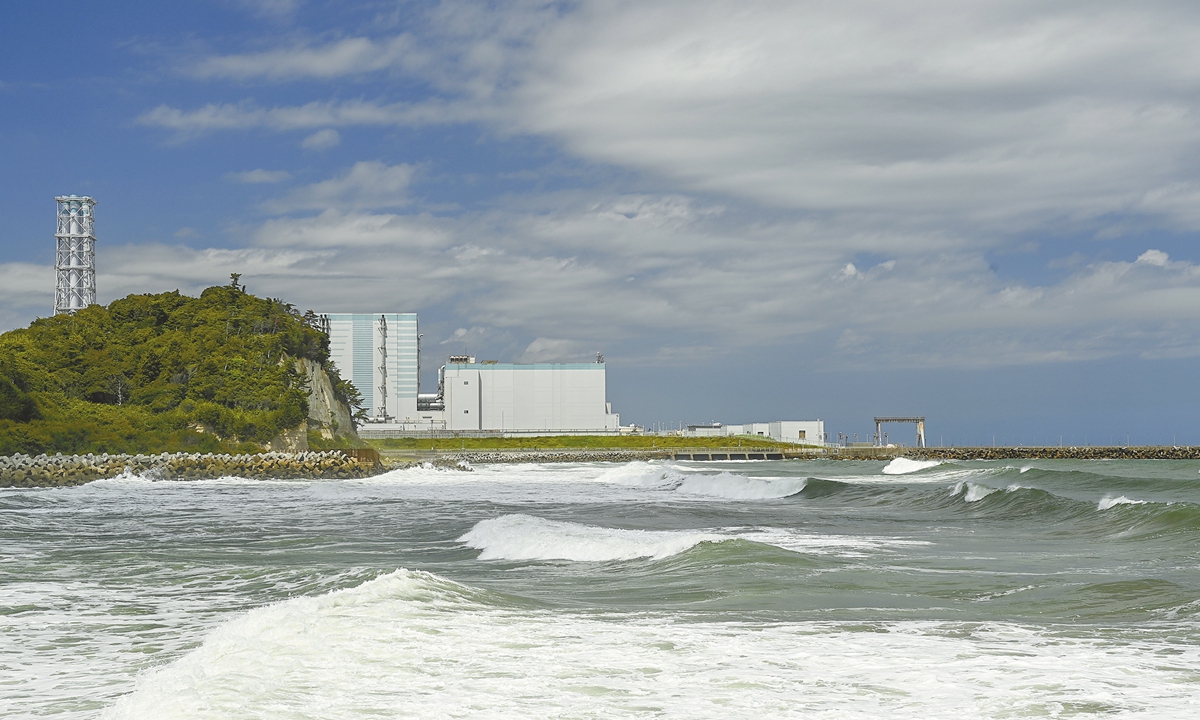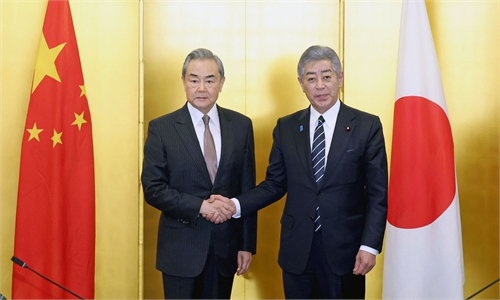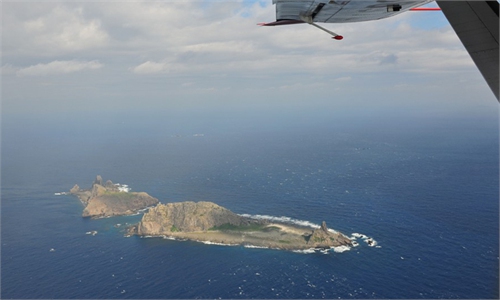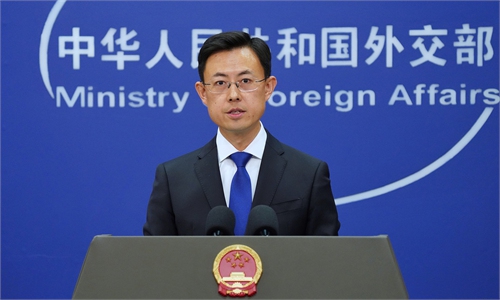Chinese FM responds to whether import restrictions on Japan’s seafood would be lifted if test results show no abnormalities

A view of the Fukushima Daiichi nuclear power plant in Okuma City, Fukushima Prefecture, Japan, where radioactive water was discovered to be leaking from reactor unit 2 on August 18, 2024. Tokyo Electric Power Company is continuing its controversial program to dump 1.34 million tons of nuclear-contaminated wastewater into the ocean despite strong protests from local fishermen and neighboring countries. Photo: VCG
In response to a question on whether import restrictions on Japanese seafood would be lifted if the upcoming second test result of seawater samples collected near Fukushima Daiichi nuclear power station shows no abnormalities after Chinese Foreign Minister Wang Yi said during a recent meeting with representatives of Japan-China friendship groups that there will be positive progress toward lifting import restrictions on Japanese aquatic products if test results continue to confirm safety, Foreign Ministry spokesperson Guo Jiakun said on Wednesday that both sides have agreed to continue joint and independent monitoring of Japan's discharge of Fukushima nuclear-contaminated wastewater, and relevant consultations over Japan's seafood export to China will proceed if results remain normal.
Guo said that during the sixth China-Japan High-level Economic Dialogue, co-chaired by Chinese Foreign Minister Wang Yi and Japanese Foreign Minister Takeshi Iwaya, the Japanese side reaffirmed its commitment to long-term international monitoring and China's independent sampling.
Guo stressed that China's opposition to Japan's unilateral discharge of Fukushima nuclear-contaminated wastewater remains unchanged. Since last year, Chinese experts have conducted two independent sampling missions in Japan and promptly released the results.
Based on Japan's fulfilment of its commitments and no abnormalities found in test results, China's General Administration of Customs held technical talks with the Japanese side in Beijing on March 12 regarding the safety of Japanese seafood, Guo said.
China will continue urging Japan, alongside the international community, to honor its commitments and ensure the Fukushima nuclear-contaminated wastewater discharge remains under strict international oversight, according to Guo.
Global Times



